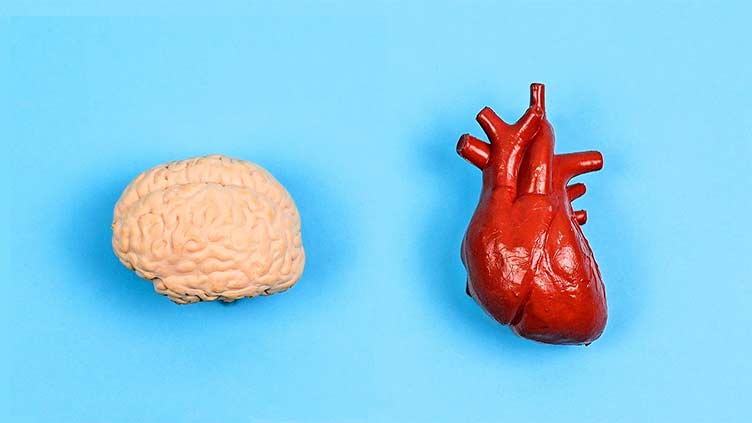Heart attack adds six years to brain age: study

Cardiovascular events like heart attack and stroke have previously been linked to cognitive problems
ISLAMAABAD, (ONLINE) - New research shows that having a heart attack eventually leads to faster mental decline that is the equivalent of adding 6 years to the age of the brain.
The study was published Tuesday in JAMA Neurology and specifically examined the impact of heart attack on the normal process of brain aging. It’s normal for people’s thinking speed, memory, and ability to concentrate to worsen as they age – a process that medical professionals call age-related cognitive decline.
Cardiovascular events like heart attack and stroke have previously been linked to cognitive problems. In this latest study, researchers set out to determine how heart attacks impact overall cognitive function, memory, and brain skills called executive functions.
Having a heart attack did not impact those three cognitive measures immediately following the event. But all three of the measures were impacted in the years following the heart attack, and a person’s race and gender also played a role in the severity of the decline.
Heart Attack Warning Signs
It isn’t always clear, but these common symptoms can point to a heart attack. Learn how the acronym UPS can help you in an emergency.
In women who had a heart attack, the decline was not as noticeable as it was in men who had a heart attack. And similarly, the impact of a heart attack on cognitive function was not as severe in Black people compared to White people.
The researchers analyzed data for 30,465 adults who had no history of heart attack, stroke, or dementia. The average age of people in the study was 64, 56% of the people were women, and 29% of the people were Black. Over the course of the study period, 1,033 people had a heart attack.
The findings “suggest that prevention of [a heart attack] may be important for long-term brain health,” the authors wrote.
About 805,000 people in the U.S. have a heart attack annually, which “is a medical emergency in which the blood supply to the heart is suddenly and severely reduced or cut off, causing the muscle to die from a lack of oxygen,” according to a summary from Johns Hopkins Medicine, where the lead researcher of the study, Michelle Johansen, MD, PhD, works.

